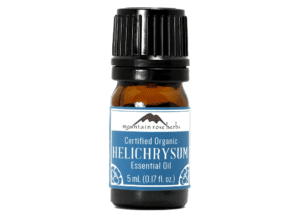Overview
Kidney stones are hard deposits that develop in concentrated urine comprised of minerals like salts, and calcium, oxalates, and uric acid.
They’re formed in the kidney area and can travel through your urinary tract down to your bladder.
Kidney stones are excruciating and may impact kidney function if left untreated.
Symptoms of kidney stones include:
- Lower back pain
- Lower belly pain
- Nausea and vomiting
- Pain or a burning sensation while urinating
- Pink or brown-colored urine
- Cloudy urine
- Bad smelling urine
Treatment options usually include pain medication and drinking plenty of water to pass a kidney stone.
Kidney health and proper hydration are essential to reduce your chances of recurring kidney stones or develop complications.
If a kidney stone becomes stuck in the urinary tract or you develop an infection, surgery may be needed.
What puts you at risk for kidney stones? (1)
- Family history of kidney stones or kidney problems
- Having had a previous kidney stone already
- Recurrent urinary tract infections
- Chronic dehydration
- Obesity
- A highly processed and high-sodium diet
- Digestive issues and surgeries
When to see your health care provider:
- If you have excruciating pain that impacts your quality of life
- If there’s blood in your urine
- If you have nausea and vomiting
- If you’re experiencing fever and chills
What are natural ways to deal with kidney stones?
- Stay hydrated
- Eat the rainbow – a wide variety of multi-colored veggies to keep your pH levels balanced
- Avoid sugars and processed foods
- Reduce or eliminate coffee and alcohol (they’re both dehydrating)
- Move your body regularly
Other potential natural remedies for this condition may be the use of essential oils.
Essential Oils As Home Remedies
Essential oils (EOs) are highly concentrated plant extracts containing active compounds known to offer several health benefits.
Aromatherapy is a form of alternative medicine and natural health modality that uses essential oils for therapeutic and healing purposes.
Research shows that many EOs have properties that can help address specific risk factors for kidney stones:
- Anti-inflammatory properties
- Pain relief
- Immune system support
- Detox support
- Weight loss
- Nausea relief
That being said, there is currently no scientific evidence to support the claim that essential oils can help you pass painful kidney stones or prevent them from forming.
The Best Essential Oils for Kidney Stones
Anecdotal evidence suggests that the following essential oils may help with kidney stones:
Peppermint Essential Oil




- Peppermint essential oil is an effective pain reliever.
Clary Sage Essential Oil




- Clary sage oil can help support healthy fluid circulation in the body.
Frankincense Essential Oil


- Frankincense oil is a potent anti-inflammatory that also has calming effects, which can be useful when dealing with painful conditions like this one.
Orange Essential Oil


- Citrus oils like grapefruit, orange oil, and lemon essential oil can be detoxifying.
Lemongrass Essential Oil


- Lemongrass oil can help increase circulation and blood flow to the kidney while also reducing infection risk.
Geranium Essential Oil


- Geranium oil acts as a natural diuretic that can help increase urine flow to help pass the stones.
Helichrysum Essential Oil

- Helichrysum oil fights inflammation while supporting detoxification.
Fennel Essential Oil

- Fennel oil can help with spasms associated with the kidneys, and it can also help flush out uric acid.
Safety Concerns
When essential oils are used safely and mindfully, they typically offer little to no harmful side effects.
Always choose certified organic, therapeutic-grade products that have not been diluted or contaminated.
Essential oil blends can be particularly useful because mixing EOs often amplifies the healing effects.
If you’re using EOs directly on the skin, then always dilute them with a carrier oil like coconut oil.
EOs are powerful, and a little goes a long way; some oils can irritate the skin if they’re not applied properly.
Make sure you’re aware of the contraindications for each oil you’ll use. Some oils aren’t suitable for babies, young children, pregnant and nursing women, and high blood pressure or epilepsy.
If you experience any adverse reaction while using any oil, discontinue use immediately.
How To Use EOs for Kidney Stones
If you’re going to apply, EOs topically always dilute them first in a carrier oil like castor oil or coconut oil.
Use about 2-3 drops of EO per 1 teaspoon of carrier oil.
You can create your DIY blends to amplify the medicinal effects of the oils.
A roller bottle can be useful to take the blends with you wherever you go.
EOs and carrier oils like coconut oil make handy massage oil options, too.
You can also use an essential oil diffuser, although this method is not as concentrated as using an inhaler or topical application.
Use any combination of the oils mentioned above to create your own custom diffuser blend.
Stick to 12-15 drops of EO per 200 ml of water in your diffuser.
REFERENCES:
- https://www.mayoclinic.org/diseases-conditions/kidney-stones/symptoms-causes/syc-20355755












